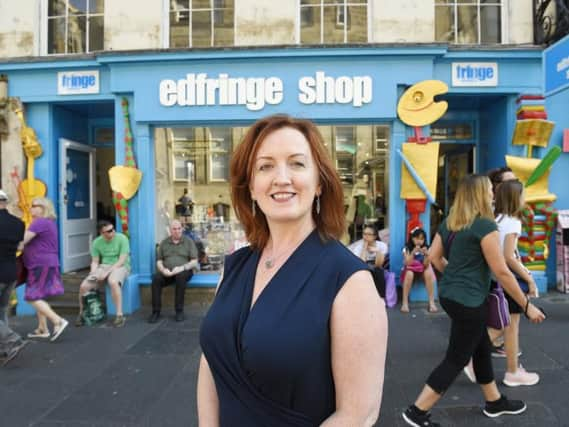Edinburgh Festival Fringe chief's full statement on 'Living Wage' criticism


I love the Edinburgh Fringe, and so do the people who have taken time to correspond with the Fringe Society over the last few days to ask about our efforts to ensure fair treatment of workers and volunteers.
Like them, we believe that adopting the highest possible employment standards is both morally and economically beneficial for everyone involved in the Fringe. We are unequivocal in our condemnation of any form of exploitation.
Advertisement
Hide AdThe Fringe Society has taken a considered and determined approach to supporting fair employment and volunteering models of best practice, both within the Society and across our partner organisations and Fringe venues.
Whilst the Fringe Society is a charity and a living-wage employer, we acknowledge that it is more challenging to implement a single approach across all 317 venues who are registered within the Fringe programme.
The Fringe is (and has always been) an eclectic ecosystem which features a wide variety of operating models, from volunteer-run theatre groups and small not-for-profits, to larger-scale, year-round operators and permanent venues.
It is important to recognise that both volunteer and staffed models have a part to play across the festival landscape.
Our focus is to ensure that individuals who want to work or participate at the Fringe are provided with as much information as possible to make an informed choice, and that these models remain true to the principles that the festival was founded upon.
Are there things about the Fringe that need fixed? Yes.
Is it still an amazing place to work? For the vast majority of people, yes.
And I don’t say that without real evidence.
Advertisement
Hide AdWe conducted an independent survey before last year’s Fringe to establish a clear picture of the experiences of the many people who work at the festival, collecting the views of nearly 500 people from 60 different organisations (the biggest sample ever across the Fringe), in roles ranging from front of house to box office, technical to bar and catering.
The survey generated a huge amount of factual information – including the fact that 90 per cent of respondents would choose to work at the Fringe again – and we took the decision to make all of this publicly available online.
Advertisement
Hide AdThis has informed the advice and guidance we give to venues and participants. We are committed to repeating this independent survey every three years so that we can have an open and honest assessment of progress.
The survey provided clear guidance on areas we needed to strengthen and we have taken forward a variety of practical measures over the past 12 months, including strengthening our codes of conduct for venues and companies who put on work at the Fringe.
We have worked with the union BECTU on our Guidance on Good Employment Practice and with Volunteer Edinburgh on our Best Practice Guidance for Engaging Volunteers, and have been proactive in engaging venues and companies in the process.
Last year, we distributed posters to every venue across the city to ensure workers and performers know their rights; met with the City of Edinburgh Council, the University of Edinburgh and other key stakeholders to explore ways of working together to ensure the best culture and conditions for a Fringe that works for everyone; and have held one to one meetings with every venue referenced in the survey to address any concerns raised.
We met with representatives from the Fair Fringe campaign both before and after last year’s Fringe and continue to welcome positive engagement, particularly on an issue where we have so much common ground.
It is our hope that the campaign can respond to our request to share their data with us so that we can develop more constructive ways forward. We have invited Fair Fringe representatives to address venues in an open forum at our upcoming Venue Managers’ Meeting and look forward to welcoming them for an important discussion about the issues and ways forward.
Advertisement
Hide AdThe Fringe Society has a duty to support all elements of the Fringe and is acutely aware of the constraints placed on everyone in this current economic climate.
Many artists, companies and venues, particularly the smaller ones, receive no financial support and that is why we are working hard to drive down the cost of accommodation for those involved in the Fringe.
Advertisement
Hide AdWe have frozen our registration fees since 2008 and are committed to do so until 2022, as well as reducing our box office fee from four per cent to three per cent by 2022.
Rooted in the original ethos of being an open platform for creative expression, the Fringe Society has never had a policy of banning or excluding, whether that be venues, companies, shows or individuals.
Our approach has been to work with Fringe constituents to fully understand their models, to find positive solutions, to support, advise and improve.
We are exploring all options for ensuring that the codes of best practice are adhered to and the Fringe continues to be a positive environment to visit, perform and work in.
This conversation about working conditions is live and dynamic and we are very open to having it and to welcoming all constructive views and recommendations.
Like you, we want this to continue be the best performing arts festival in the world at which to perform, produce, see shows, discover talent, and develop a career.